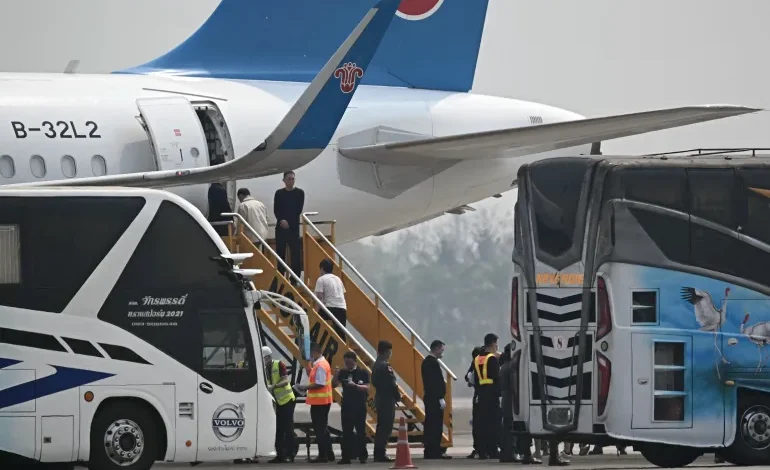Up to 1,000 Chinese nationals rescued from online scam centers in Myanmar are slated to return home following an international crackdown on the illegal operations, Al Jazeera reports.
These individuals are part of a larger group of thousands of foreigners freed this week from these centers, where they were allegedly forced to perpetrate romance and investment scams, among other fraudulent activities.
Many of those rescued claim to be victims themselves, lured to countries like Thailand with the promise of legitimate employment before being trafficked across the border into Myanmar.
The Karen Border Guard Force (KBGF), an armed group allied with Myanmar’s military government, has announced plans to deport 10,000 individuals from the Myanmar-Thailand border region in the coming days. Thailand, China, and Myanmar are collaborating to shut down scam centers operating along the border. Thai authorities are playing a central role in the evacuation and processing of workers, facilitating their transfer from Myanmar to Thailand in small groups.
The United Nations estimates that as many as 120,000 people may be working in online scam centers in Myanmar, where criminal gangs have exploited the country’s ongoing instability and civil war. An estimated 100,000 more may be trapped in similar facilities in Cambodia, with thousands more located across Southeast Asia.
Earlier this month, Bangkok took steps to disrupt scam operations by cutting off electricity to the border region.
A first group of 200 rescued individuals flew back to China on Thursday. Footage released by state media showed the repatriated Chinese nationals wearing handcuffs and matching jumpsuits as they disembarked from their plane.
The recent crackdown gained significant momentum following a high-profile case in January involving Chinese actor Wang Xing. He was reportedly lured to Thailand under the false pretense of a film role and subsequently trafficked into Myanmar. Although Wang was quickly rescued by Thai authorities, his case went viral on Chinese social media, sparking widespread discussion about the potential dangers of traveling to Thailand.








